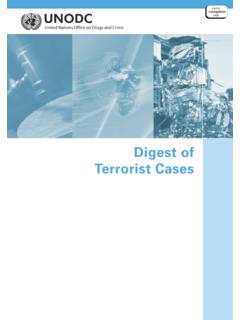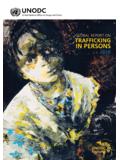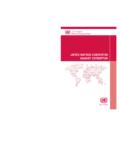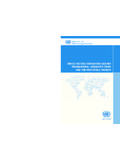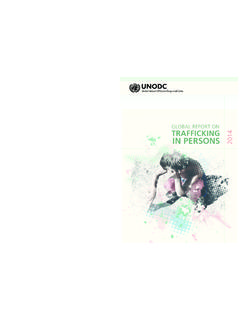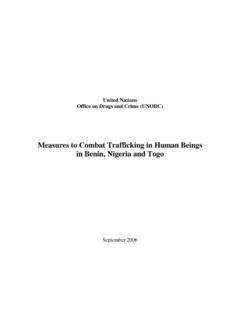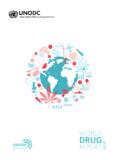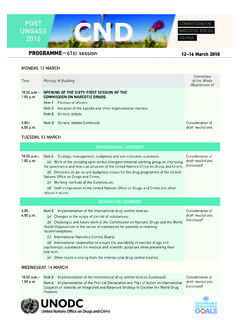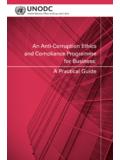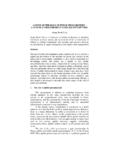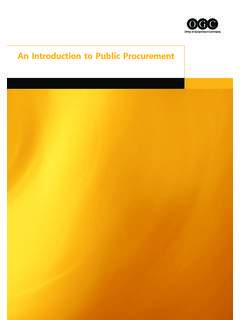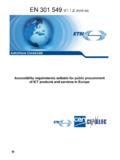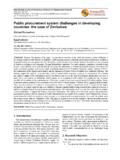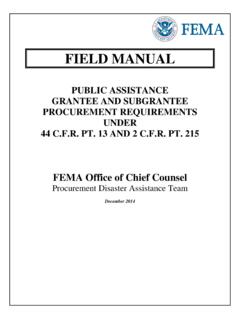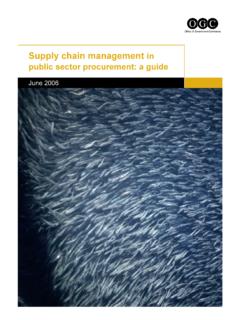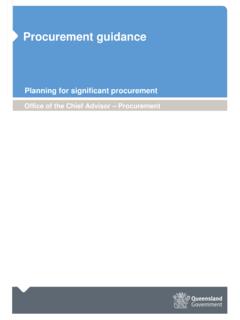Transcription of Good practices in ensuring compliance with article …
1 Guidebook on anti-corruption in public procurement and the management of public finances good practices in e nsuring compliance with article 9. of the United Nations onvention against Corruption C. United Nations, September 2013. All rights reserved, worldwide. The designations employed and the presentation of material in the present p ublication do not imply the expression of any opinion whatsoever on the part of the Secretariat of the United Nations concerning the legal status of any country, territory, city or area, or of its authorities, or concerning the delimitation of its frontiers or boundaries.
2 Information on uniform resource locators and links to Internet sites contained in the present publication are provided for the convenience of the reader and are correct at the time of issue. The United Nations takes no responsibility for the continued accuracy of that information or for the content of any external website. This publication has not been formally edited. Publishing production: English, Publishing and Library Section, United Nations Office at Vienna. In collaboration with United Nations Office on Drugs and Crime Vienna Guidebook on anti-corruption in public procurement and the management of public finances good practices in ensuring compliance with article 9 of the United Nations Convention against Corruption UNITED NATIONS.
3 New York, 2013. iii Acknowledgements This publication was prepared by the Corruption and Economic Crime Branch of the United Nations Office on Drugs and Crime (UNODC) in partnership with the International Anti- Corruption Academy (IACA). This Guidebook is the result of collaborative efforts of several organizations and individuals, notably members of the UNODC Technical Working Groups in India and Mexico of the project, public - Private Partnership for Probity in public procurement . Besides project counterparts in India and Mexico, we would also like to thank the Competition and State procurement Agency of the Republic of Georgia, the Parliament of the Republic of Austria and the City of Martin, Slovakia for sharing case examples, including good practices and lessons learned, which are included in this Guidebook.
4 This project was carried out with the assistance of the law firm Schnitzer Law (Austria) and the George Washington University (USA). We would like to thank in particular the lead author Johannes S. Schnitzer (Schnitzer Law), contributing editor Professor Christopher R. Yukins (George Washington University Law School), as well as research assistant Rosamond Xiang (George Washington University Law School), for their assistance. We would like to thank the following people for peer reviewing the paper: Caroline Nicholas (UNCITRAL), Candice Welsch (UNODC), and Shannon Bullock (UNODC).
5 UNODC gratefully acknowledges the support of Siemens, which has funded this Guidebook as part of the Siemens Integrity Initiative. The main objective of the Siemens Integrity Initiative is to create fair market conditions for all market participants by fighting corruption and fraud through collective action, education and training. v Executive summary Implementing an effective public procurement system based on transparency, competition and integrity is not simple. A procurement system that lacks transparency and competition is the ideal breeding ground for corrupt behaviour and thus most important international codes on anti- corruption and public procurement rest heavily upon these fundamental principles, in order to discourage corruption.
6 The United Nations Convention against Corruption (UNCAC), which provides a framework for shaping national public procurement legislation, is a lead example in this regard. UNCAC calls for the establishment of appropriate systems of public procurement based on the fundamental principles of transparency, competition and objective criteria in decision-making. It has been at the heart of the United Nations Office on Drugs and Crime's (UNODC) continuing efforts to improve procurement systems worldwide. Moreover, most recent reforms in public procurement , around the world, reflect the text and spirit of UNCAC.
7 These reforms are: In keeping with the reforms called for by UNCAC, States have codified and published their procurement rules, and have made their procurement processes more predictable and trans- parent. These reforms have made it easier for those in civil society and vendors to monitor and participate in public procurement . Some States have gone a step further and have used electronic procurement systems quite effectively, both to save money and to enhance transparency. Procurements that have been tainted by corruption are now subject to challenge, usually before a court or an independent agency, on the simple premise that once corruption invades a procurement process, the award is no longer based on best value to the community.
8 This tracks UNCAC's explicit call for challenge systems in States parties. Also in keeping with UNCAC, States have bolstered their rules regarding ethical behaviour in contracting, for both public officials and contractors. True to UNCAC's goals of making procurement systems more accountable, States have sanctioned and debarred corrupt and fraudulent contractors. States, with support from a broad array of international institutions, have invested in pro- fessionalizing their procurement work forces. UNCAC, which entered into force in 2005, played a significant role in the further development of the UNCITRAL Model Law on public procurement (UNCITRAL Model Law).
9 The UNCITRAL. Model Law is being used as a template by numerous governments around the world for shaping national public procurement legislation. UNCAC, with its far-reaching approach and the manda- tory character of many of its provisions, has already proven to be of major impact in the fight against corruption. This Guidebook serves as a reference material for governments, international organizations, the private sector, academia and civil society, by providing an overview of good practices in ensuring compliance with article 9 of UNCAC, which requires establishing appropriate systems of public procurement , as well as appropriate systems in the management of public finances.
10 The Guidebook starts with an overview of public procurement as a major risk area for corruption;. an overview of UNCAC and public procurement ; and a review of the most common forms of corruption in public procurement . Chapter I analyses the requirements of article 9 of UNCAC, in terms of the objectives of public procurement . The flow of the entire public procurement cycle (divided into the pre-tender, tender and post-tender stages) is discussed in chapter II, which maps important corruption risks and identifies examples of responses to these risks of corruption.
